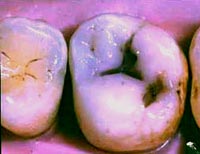
I haven't updated this blog for quite some times as i was very...very...busy.
Well...i have to write a resume as i'm going to apply post as dental officer soon im my place. My interview is on valentine's day..so if u r reading this wish me luck.
I have gather some tips for writing a resume..so help urself if u needed these tips. i'll be writing about dental stuff soon.
There's a whole publishing industry dedicated to writing resumes, on the Net and in print. Even a short surf will reveal many sites. Some of them say the same old thing.
For sure, there is only so much you can do with your resume at the end of the day. However, you can certainly make it look better than just ok. Creating an outstanding resume isn't difficult, but it does require some careful thought. It requires analysis of your strengths, some organization and definitely some creativity.
First things first, though. Below we highlight some key points to help you understand what goes into a resume and how it should look.
What's the difference between a resume and a CV?
There is no real difference, except the first is a French word used commonly today in companies that use American English. The CV is originally a Latin word, and is used more frequently in British companies.
Today however, internationalisation and globalisation have made the word resume the most commonly used term. Most companies tell us they don't particularly care what word you use. What's more important is the information it reveals about you.
It's not to get you the job
Remember this: the resume is not supposed to get you the job; it's only to get you the face-to-face interview. Experienced recruiters - when they see a resume for the first time - will scan it in less than one minute UNLESS something in it makes them want to read further.
So, here are some pointers that highlight skills (compiled from our own experience as well conversations with CEOs, MDs and HR Directors - to help make your resume stand out. Take note that these skills go beyond the academic qualification.
Highlight Key skills
Most employers look for evidence of leadership, teamwork, commitment, innovation and communication skills. They also want a positive attitude, and someone who shows they are willing to learn and not disdainful of doing menial tasks.
Not your life story, please!
A resume is a summary of your education and experience, not your entire life story. It is meant to highlight your potential as a valuable employee. Obviously, as a fresh graduate you may not have as much to say compared to an experienced person. But that doesn't mean you exaggerate your abilities.
Length does matter
Some companies prefer one-page resumes, and more conventional formats. Others look for resumes that look and sound different. It really depends on the company and the industry, so do your homework. In general, however, they all like it short and easy to scan. For a fresh graduate, keep it to a maximum of two pages.
Use action verbs
These are action words like initiated, implemented, planned, managed, organised, analysed, participated, performed, assisted and prepared. They are very effective. Avoid saying you were 'involved' in something as it is a vague word and suggests you did not play a significant role in the activity - and therefore did not learn much from the experience.
Get the language right
All the enthusiasm in the world won't help, if you letter is full of spelling mistakes and bad grammar. Unfortunately, an astonishing number of resume's received by the private sector today are full of them. If you are not confident about your English, get someone to help you. Even if at the interview, the interviewer notices your lack of fluency in English, he/she will be impressed that you took the effort to ensure your written resume was impeccable. It reveals that you are willing to ask for help and want to improve, two great attitudes to have!
Use numbers to your advantage
Numbers are powerful and here are some examples you can use:
*Recruited 20 volunteers to help in the Annual Inter-Varsity Ball
*Managed 5 committees to plan for the National Debate Competition
*Interviewed 10 companies to write a 3,000-word article on the impact of the SARS epidemic on tourism for the college magazine
*Presented the weekly 30-minute campus radio call-in show that has an audience of 1,000 students
Education
Your education is the first criteria of consideration for a potential employer, but it's not the only decisive factor. Your primary school does not need to be included. As a fresh graduate, you probably will need to list your secondary school information - keep it short though, highlighting any special prizes or achievements.
Listing of courses
There is no need to list every single course you have studied at university/college. Just highlight the ones relevant to the job you're applying for. Remember to include courses that are also not directly related to your major area of study, but show that you are multi-disciplinary skills. For example, if you have a degree in engineering, it would be good to show that you have taken subjects in Finance, Marketing, or Mass Communications.
Listing extra-curricular activities
Extra-curricular activities are an important reflection of how well-rounded a person you are. This shows that you have interests beyond just studying. Extra-curricular activities are excellent to show teamwork, leadership, competitiveness and communication skills - which are valued by employers. Extra-curricular activities would include any activity outside of university/college hours. ('Lepak', however, is not such an activity!").
Highlighting achievements
If you won 1st place in a Talent Competition, or were Captain of the Football Team, these should definitely go on your resume under the heading Achievements. Even if you weren't in a leadership position, but were on a winning team, that's important information. Also, if you didn't win a talent competition, your participation shows initiative and courage and a fun personality. Do not underestimate the value a prospective employer sees in such activities.
Special skills
These would include additional skills you have such as being able to speak more than one language, fluency in sign language, or any other specific technical skills.
Look Alive!
It is common practice in Malaysia for employers to ask job applicants to send photographs. This is not necessarily the practice in other countries. If asked for a photograph, it means the way you look is an important criteria for employment. Get a good photograph taken - not one that makes you look like a suspect in a police line-up!
Many photographs we see show people who look bored, listless or half-dead! Make the effort to look alive and intelligent! And don't forget to Smile!
Personal information
In Malaysia, it is common for prospective employers to ask for personal information like your weight, height, race, religion and marital status. This, however, is slowly going out of style. Also, just because most people include it in their resume's, it doesn't mean you have to. This is something you have to decide for yourself.
Salary
Many job vacancy postings give you no idea of the salary; instead it asks the applicant to state the expected salary. The best thing is to ask around. Do some research and find out what companies are generally offering fresh graduates.
References
Always include references. Don't say Available Upon Request. If you want the job, then make every effort to ensure your resume is as complete as possible. Provide copies of important certificates, references, recommendations and samples of your work. For references, always include their full name, title and contact telephone numbers. Also, make sure you have their permission to use them as a referee.

